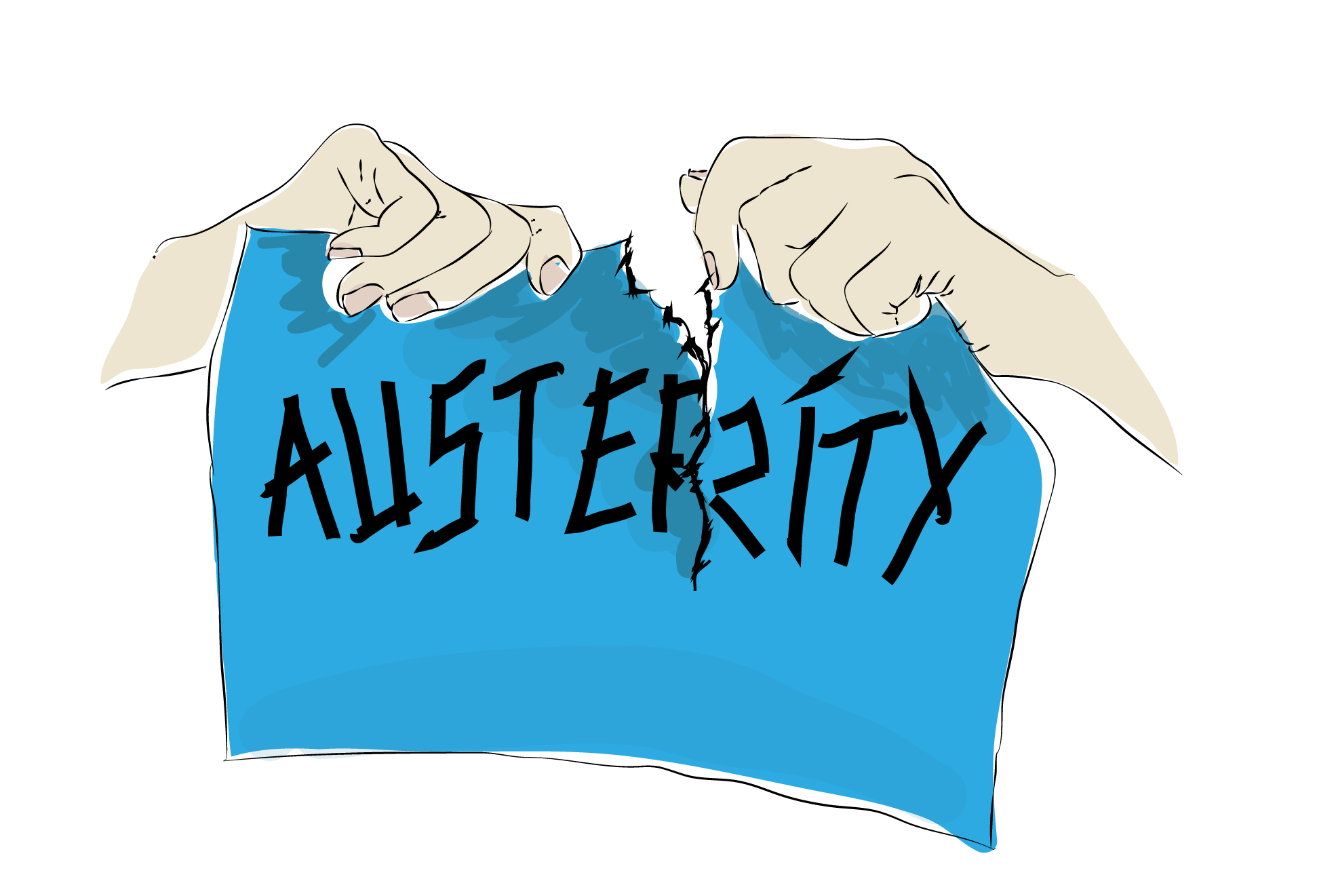Students are increasingly facing debt because of austerity
The third edition of the “Anti Austerity Speaker Series” was held this Thursday, addressing the effects of austerity measures on how educational institutions have been in result of this, and will continue to be affected over the next four years. The event, hosted by Concordia Student Union had guest speaker Erika Shaker, the education director of the Canadian Centre for Policy Alternatives (CCPA), talk about her findings on the effect of austerity. The CCPA is an independent research institute and leading voice in public policy debates. The speaker series is a collaboration between the Concordia University Part-Time Faculty Association, Concordia Student Union and Concordia University Library Employees Union.

Erika Shaker, chair of mobilization for CUPTFA, opened the talk by addressing the myths of austerity, saying there should be more discussions to combat these myths. These myths include the fact that austerity is about paying back debt, that supporting big corporations will generate economic surplus and jobs.
Shaker said how austerity measures in education funding is negatively impacting prospective students. When the budget for social programs was slashed in the 1990’s by the former minister of finance Paul Martin, Shaker said this lead to an increase in the gap between the rich from the middle and lower class.
“As tuition increased, it became more difficult for students in the lower class to obtain a post-secondary education,” Shaker said. According to the CSU’s website, Quebec universities have faced $200 million worth of cuts this past year—Concordia University alone had to make $15 million in cuts since last year.
Students have been one of the main parties suffering due to these austerity cuts. Shaker said many students are facing depression and anxiety due to the stress of financial debt. In fact, she said more students are affected by the stress of financial debt than the stress brought on by their studies.
Shaker said that the way the media portrays students struggling with debt includes the opinion that students “don’t know what hard work means,” and that if they “took on another part time job, slept more and stopped complaining and sexting … everything would be fine.” In the representation the media provides of students, this can contribute to dismissal by the government and many citizens of the struggles many students face due to austerity cuts. “It’s easy to see [the media’s portrayal] as an outright attack on youth, but I actually see this as more of an attack on progress,” Shaker commented.
Shaker also said that a great variety of age groups are unaffected by austerity measures, but youth seem to be most negatively impacted by these cuts . Arguably, she said, youth have the most to lose as they will suffer the longest from these cuts—which she described as “cradle to grave austerity.” Shaker added, “governments are reinforcing the economic instability that restricts civic participation of [important] choices for youth, ensuring their dependence and vulnerability for longer periods of time and then the media blames youth for not being more economically independent.”
Shaker challenges this norm and said if the Canadian government can diminish cuts and enhance public funding of education, this will shorten the time of a student’s financial dependence on their parents and reduce student debt.
“[Economic independence] not only allows but encourages graduates to explore, to challenge themselves, take risks and to innovate—to more quickly mature into fully formed engaged citizens and community members unencumbered by debt,” she said.
The next talk in the “Anti Austerity Speaker Series,” will introduce Professors Against Austerity, being held on Oct. 29. Upcoming dates and locations are listed on their website concordiaagainstausterity.org.



